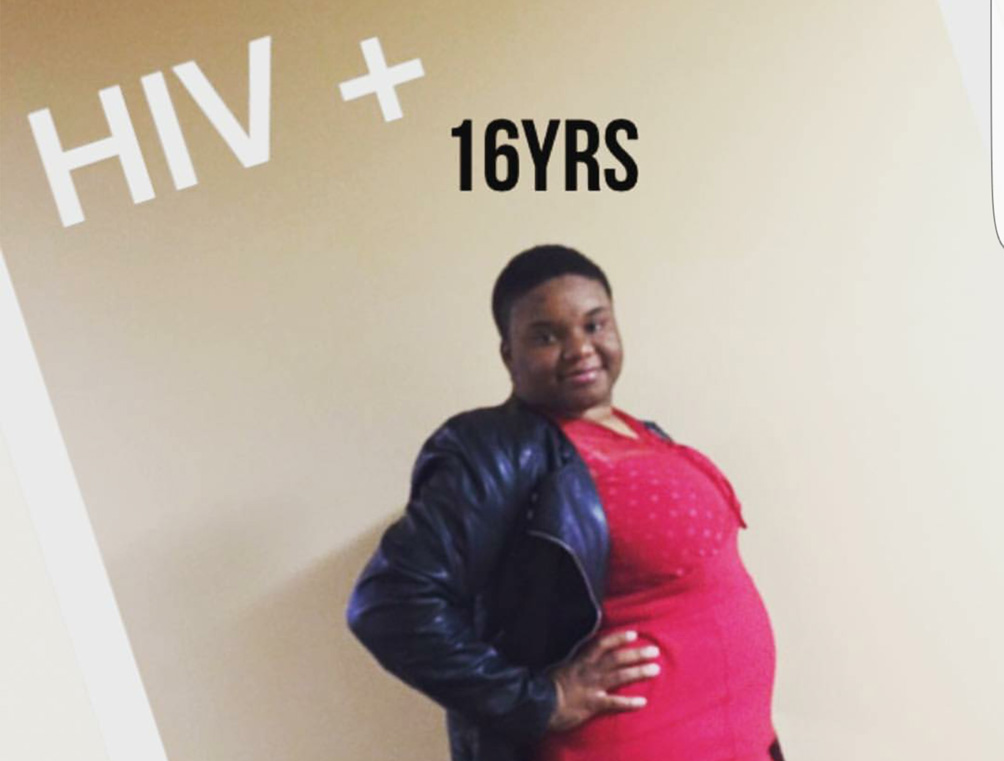In 2003, I was pregnant, homeless, and HIV-positive. But worst of all, I felt completely helpless and had nowhere to turn for help. I received my diagnosis after my senior year of high school. In college, I thought I might be pregnant. I went to the doctor to make sure.
The doctor confirmed the pregnancy. This should be a happy experience in a woman’s life, but for many women living with HIV it is confusing, scary and stressful. Pregnancy for HIV-positive women is often filled with unsympathetic strangers, family members and even medical professionals. Lucky for me, my mother was with me every step of the way.

Unfortunately, my doctor was a generalist and didn’t know how to provide care to someone living with HIV, let alone help them deliver a healthy baby. I needed the care of an HIV specialist. I waited at the hospital for six hours before my doctor referred me to someone who could help. That was when the hospital’s HIV social worker directed me to the Pediatric AIDS Chicago Prevention Initiative (PACPI), which connected me to the care I needed.
I was immediately assigned a case manager, Jaime, who genuinely cared about my health and wellbeing. She made sure I got to my doctor’s appointments on time, filled my prescriptions and enrolled in prenatal training courses so I could learn how to care for my child. She also helped me sign up for health insurance and food assistance and find my very own apartment. This support is the reason my daughter was born without HIV. It is also the reason I am an empowered, strong, and independent mother. Today, I am able to provide for myself and my children and, most importantly, my daughter and son are HIV-negative and completely healthy.
We’re the lucky ones.
Not all women receive this kind of support though. Many women don’t know about the services that can help them. And like me, they face big challenges like stigma from an uninformed doctor or nurse when they test positive. Not knowing or not believing that there are resources to support HIV-positive pregnant women can leave women feeling scared and unsure about if and how having and baby born HIV-free is possible. My story of being connected to quality case management and health care shouldn’t be unique. It should be the story of every woman living with HIV. All women living with HIV have the right to such support and care.

Over the past sixteen years, I have learned how to be strong and in the right battles. I’m strong enough now to speak to the world. I know I can make things change. That’s why I speak out now to lawmakers, to media and to Black women living with HIV in my home state of Illinois. I know my speaking out can help young Black women, and all women, overcome HIV and stop the stigma. I tell my daughter, stigma is just like fear and not knowing what the outcome is going to be.
You don’t have to be afraid. You can overcome that fear within yourself. If you don’t know your HIV status, get tested. Testing positive for HIV ain’t the end of the world. You can get the care and support you need to get healthy, stay healthy and have a healthy family. You’re not alone. There are thousands of Black women living with HIV in this country, and we are strong.
Reach out, find a group, get support, get into care – you don’t have to do this all by yourself.
 LeSherri James is an HIV advocate living in Chicago. She speaks out and takes action for women living with HIV in her community and around the state.
LeSherri James is an HIV advocate living in Chicago. She speaks out and takes action for women living with HIV in her community and around the state.


